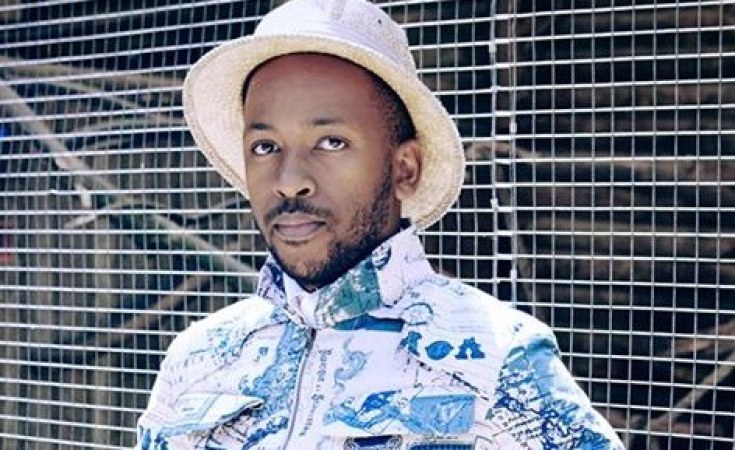This week's show is essentially based around a bit of silliness we stumbled upon on the News24.com website, one of South Africa's top daily news portals. The piece of "citizen journalism" was certainly ripe for a bit of fun, though once we stopped laughing there were also some serious issues to consider.
Now, the author is not a professional journalist. Rather he is a member of the public taking advantage of MyNews24, a platform maintained by News24 to allow content to be "independently written by members of News24's community." More and more online news sites are encouraging this "citizen journalism" because 1) it's cheap as they don't need to pay the writer, 2) it's likely to be controversial, which means that 3) it generates more clicks and comments.
It's highly debatable as to whether this practice is good for journalism or for the circulation of quality information. Indeed, one thing it seems to have done is give a platform to conspiracy theories and more 'conspiratorial' ways of thinking, as seen in the piece in question, which asks:
"When was the last time you played your Afrikaans music? When was the last time you played your Xhosa, your Zulu, your Sotho or Pedi music? You can't answer that can you? They brainwashed you to think their music is the best and their culture is the best. They brainwashed you to forget about Kurt Darren, Mfiliseni Magubane, HHP (though his music is whack) , David Jenkins, Lira and many more, When was the last time you bought South African music?, When was the last time you bought South African movies CD's?
Just be honest you're no longer interested in South African products especially entertainment. Tell me if you still don't agree with me if I say they control your mind. They achieved brainwashing people by different means, including technology and media of course."
Obviously, that's largely paranoid nonsense - and that's before we even mention the writer's dangerous ideas about the cure for HIV/AIDS - though the troubles he points to in South Africa's music industry are genuine. He's right about the problems just not about their causes. But what are the causes then?
At Tune Me What, we've thought long and hard about why South Africa has produced fewer home-grown superstars than, for example, Australia and Canada which also have to contend with the ubiquity of British and American pop culture.
We've tried to work out why even Jamaica, a country with a population smaller than the Johannesburg Metro area, has more musicians who are global household names than South Africa, not to mention tiny Sweden which doesn't even have English as an official language, but whose musicians sell massively in South Africa: Abba, Roxette, Dr Alban, Yngwie Malmsteen, Neneh Cherry, to name a few.
Obviously, part of the reason is South Africa's historic cultural isolation during the dark days of Apartheid, but now more than 20 years on, that excuse is growing old.
Why is it the case today, for example, that amazing new artists like Nakhane Toure - who, after all, sings in English (and is thus 'accessible') and who has a unique and fresh sound - are not being released internationally? On the other hand, why are artists like Spoek Mathambo released on international labels, but hard to find in South African record stores?
It seems to us that, rather than any 'brainwashing' conspiracy, the industry simply isn't trying hard enough and isn't coordinated. The old saying that 'nothing succeeds like success' is very true here. Artists who are perceived to be doing well overseas tend to do better locally as well.
Another issue is the support local music is given on radio. Since 1997, when the local quota was upped to 20% by law, things have actually improved, though according to the National Association of Broadcasters:
"[M]ore than 60 percent of broadcasters argue that there is insufficient South African music in their format to support a local content quota of 40 percent and 79 percent believe that local content levels should be decided according to each station's format, language and licence category."
We have our doubts about this. Even if it is true that there is insufficient South African music currently, that ought to be an incentive for record companies to develop and produce more local acts to meet the demands of the quota.
The entire point of quotas - in any industry - is to encourage local producers to increase output to meet the increased needs. Meanwhile, radio stations are also missing another trick. There is a huge back-catalogue of music which was never adequately promoted and is largely unavailable. Old music is as important as new music. The UK and the US are successful precisely because they respect and promote their legacies.
It's easier to believe in conspiracies because it provides an excuse for not taking action. If invisible powerful forces are working against you then it is pointless taking positive steps to change the situation. But as we noted in a previous column, there are new possibilities and opportunities offered by changing technology. Cheaper production and reproduction as well as digital distribution have made it easier than ever for artists to produce, and for listeners to discover more South African music.
It is also possible that good taste, and not mind control, are responsible for ears closing to Kurt Darren's music. Sorry Kurt!
Featured in this show are: Anchors Up, Dog Detachment, Galore, Jabula, the Jazz Dazzlers, Kippie Moeketsi & The Marabi Kings, Lucy Kruger, Mabi Gabriel Thobejane, MarkAlex, Sugardrive, and Tribe After Tribe. (Please note, the show was hijacked towards the end by a space alien with a Kurt Darren LP. Leon and Brett take no responsibility for this.)
Tune Me What? is a podcast and blog by Brett Lock and Leon Lazarus that highlights South African music and artists at home and around the world. For more information, visit tunemewhat.com or facebook.com/TuneMeWhat.


